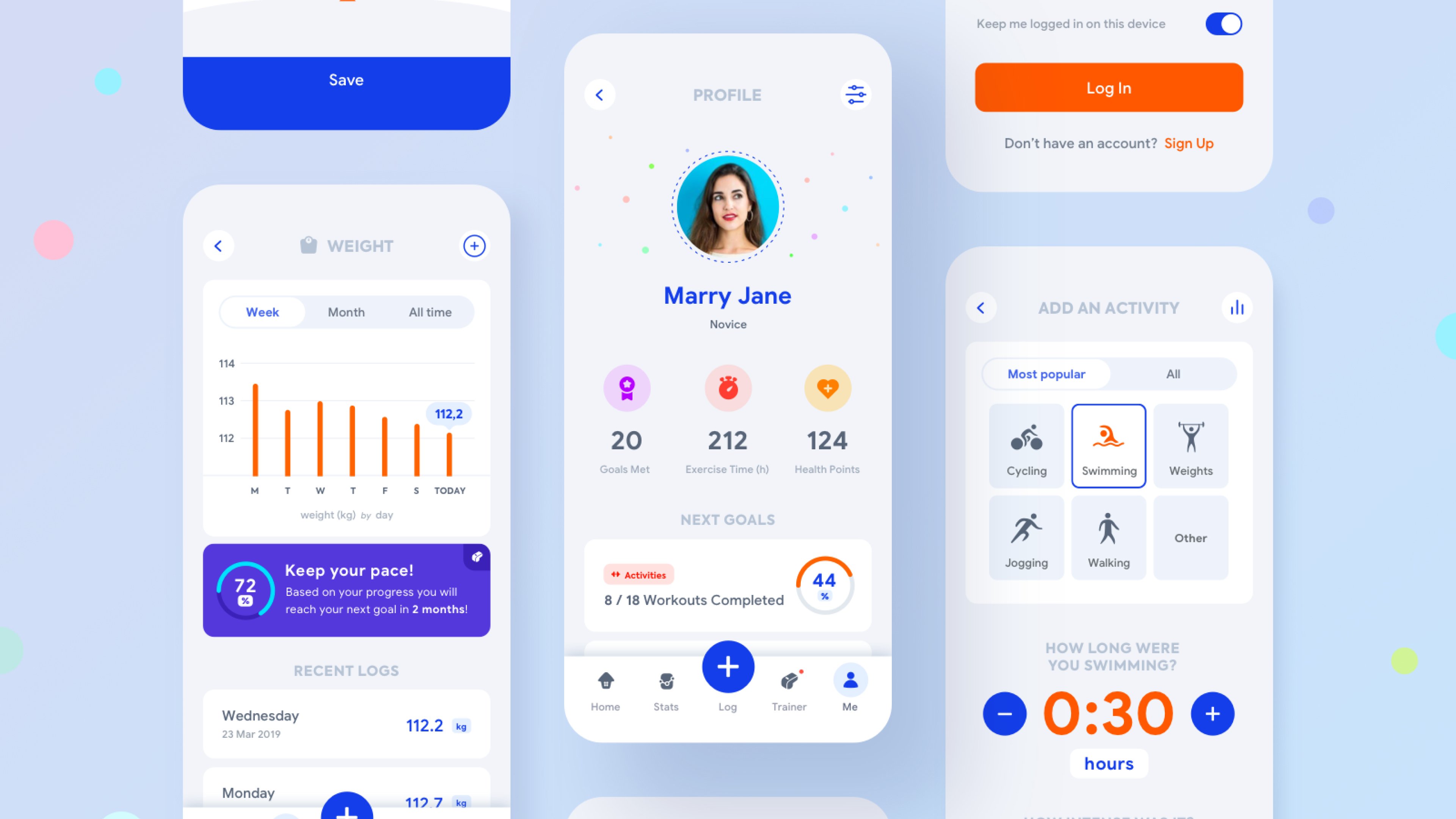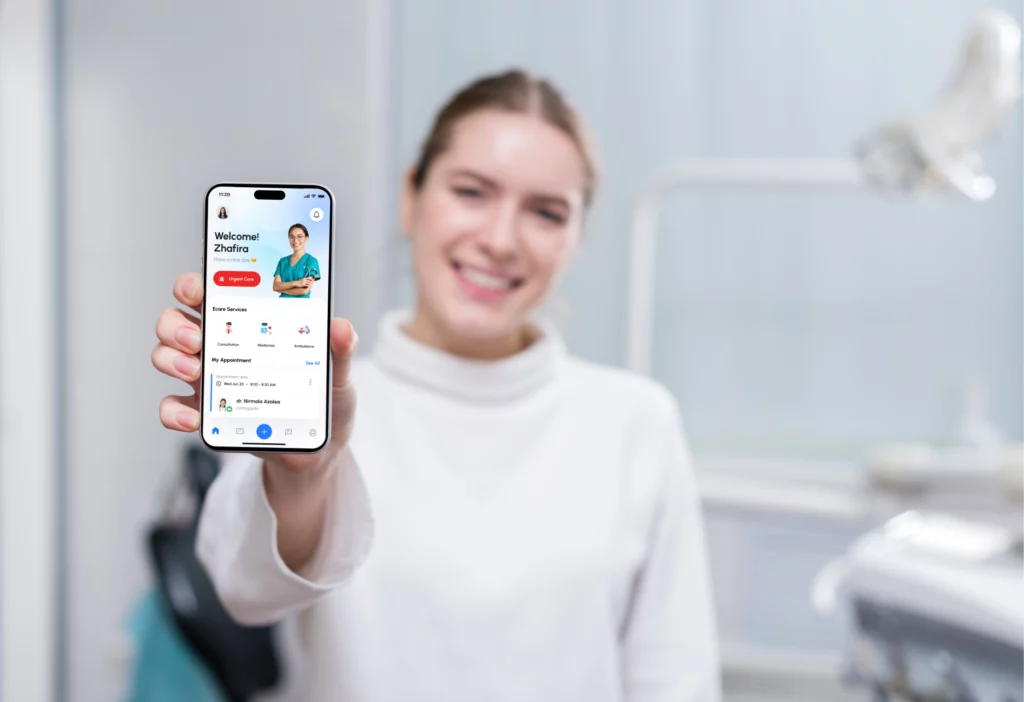Enhancing Patient Engagement Via a Mobile App for Clinics: Secret Strategies
Enhancing Patient Engagement Via a Mobile App for Clinics: Secret Strategies
Blog Article
Exactly How a Mobile Application Can Enhance Performance in Your Facility
By enhancing visit scheduling, improving client interaction, and assisting in record administration, such an app can change day-to-day process. People benefit from convenient accessibility to their schedules, while team can enjoy real-time updates to person details.
Streamlined Appointment Organizing

Mobile applications enable patients to book, reschedule, or cancel visits at their convenience, getting rid of the need for telephone call and reducing wait times. By integrating real-time accessibility of carriers, clinics can reduce gaps in the routine, maximizing source utilization.
Additionally, automated tips sent with the app can lower no-show prices, guaranteeing that visits are kept which time is made use of properly. The data accumulated via the app can also aid clinics examine peak appointment times, enabling for far better staffing decisions and enhanced service delivery.
Furthermore, a mobile application fosters a seamless link between clients and center personnel, enhancing interaction relating to visit changes or vital facility updates. In general, executing a mobile app for appointment scheduling not just improves operational effectiveness but additionally adds to a more positive experience for both clients and doctor.
Improved Patient Communication
With making use of a mobile application, facilities can considerably enhance patient communication, fostering a much more clear and appealing medical care experience. A dedicated mobile platform makes it possible for clinics to streamline communication networks, allowing people to conveniently access important information concerning their care.
With attributes such as safe messaging, people can communicate directly with healthcare service providers, assisting in timely reactions to problems and questions. This instant access aids to relieve anxiety and makes certain that clients feel supported throughout their healthcare journey. Moreover, mobile apps can provide people with real-time updates concerning their appointments, therapy strategies, and any changes in facility hours, thereby decreasing confusion and improving overall satisfaction.
Furthermore, the ability to send out push notifications relating to tips for medicine, upcoming visits, or health ideas improves individual interaction and adherence to therapy plans. This aggressive strategy not just fosters a sense of responsibility among patients yet additionally advertises much better wellness end results.
Efficient Record Administration
Efficient document monitoring is essential for clinics intending to maximize their operations and boost individual care. A mobile application can substantially simplify the procedure of accessing and preserving patient documents, making sure that healthcare suppliers have prompt accessibility to crucial information. By digitizing records, clinics can eliminate the inadequacies linked with paper-based systems, such as lost papers, taxing searches, and difficult declaring procedures.
Mobile applications enable real-time updates, guaranteeing that client information is always current and exact. This immediacy minimizes the chance of mistakes that can arise from obsolete documents, thus enhancing client safety and security and therapy outcomes. Additionally, improved information protection determines inherent in mobile applications secure sensitive individual info, making certain compliance with laws such as HIPAA.
With easy access to digital health records (EHRs) via a mobile app, medical professionals can invest much less time managing documents and more time concentrating on person care. This change to digital record administration not just enhances effectiveness yet also enhances the total client experience by decreasing delay times and streamlining visit organizing. Eventually, reliable record administration with mobile technology is a fundamental component of a modern, efficient clinic.
Enhanced Team Collaboration
In today's busy healthcare environment, enhanced staff collaboration is important for providing top quality individual care. A mobile app can function as a central hub for communication, allowing healthcare experts to share details and updates in real-time. This immediacy fosters a society of synergy, where registered nurses, physicians, and management team can work with person treatment better.
By using functions such as immediate messaging, shared schedules, and job management tools, centers can simplify process and minimize the action time for individual requests. For instance, a nurse can promptly inform a physician about an individual's change in condition, ensuring that timely treatments are made. The capability to access person data from another location permits personnel to stay informed, regardless of their place within the center.
The mobile application additionally allows the sharing of finest techniques and sources, encouraging staff to pick up from one an additional and enhance their skills (mobile app for clinics). Eventually, boosted personnel cooperation not just boosts operational performance yet also contributes to a more cohesive workplace, which is important for maintaining high criteria of individual treatment. By leveraging technology, centers can produce a joint atmosphere that focuses on synergy and communication among healthcare specialists
Data-Driven Choice Making
Harnessing data-driven decision production is essential for centers aiming to improve patient outcomes and functional efficiency. Mobile applications furnished with durable information analytics capabilities allow health care specialists to accumulate, examine, and translate client data successfully. This empowers clinics to make informed decisions based upon real-time insights, bring about enhanced care shipment.

Data-driven decision making also assists in positive administration of persistent problems. By monitoring individual adherence to treatment plans and interaction degrees with mobile applications, healthcare companies can interfere timely, possibly protecting against problems and hospital readmissions.
Ultimately, integrating information analytics into center procedures not just visit cultivates a society of constant enhancement yet also lines up with the expanding demand for customized, patient-centric care. This strategic strategy guarantees that centers are well-equipped to adjust to developing healthcare landscapes while maintaining high standards of service.
Conclusion
The integration of a mobile app within a facility can bring about significant enhancements in functional performance. By enhancing appointment organizing, improving individual interaction, and helping with effective record administration, clinics can minimize no-show prices and foster transparency. Improved team partnership and data-driven decision-making capabilities contribute to top notch client treatment. Ultimately, pop over to this site the adoption of mobile modern technology works as a crucial tool in modernizing health care practices, guaranteeing that both suppliers and clients gain from improved solution delivery.
Individuals profit from convenient accessibility to their routines, while team can delight in real-time updates to client info. Mobile apps can supply people with real-time updates about their consultations, therapy strategies, and any type of changes in center hours, thus decreasing complication and boosting overall fulfillment.

By improving appointment organizing, improving patient communication, and facilitating efficient document administration, clinics can lower no-show prices and foster openness.
Report this page